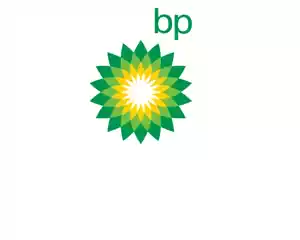
BP Oil is one ofthe biggest companies in Britain and one of the biggest oil and petrochemicals groups in the world. In its Ghent plant in Belgium, BP Oil processes 350 different kinds of lubricants, mainly for the Benelux countries, France and Russia. Its Antwerp plant processes bulk products. Proper labelling is extemely important because of the strict and complex safety regulations. This is why BP Oil called on the expertise of Zetes Belgium.
During the first sixty years of its existence, BP Oil was mainly active in the Middle East. But in the late 1960s, it moved its centre of operations to the the USA and Great Britain. Today, BP Oil is an international company with branches in more than 70 countries. A large part of its activities is focussed on the exploitation and production of oil and gas, the refining, sale and transportation of petroleum products, new forms of energy and the production and sale of chemicals.
In BP Oil’s Belgium operation, basic oil comes to the Ghent plant by ship and is unloaded onto the BP tanks. The basic oil is then mixed with some additives to produce a blend that can be used for all sorts of applications.The oils are packaged into small containers of 1, 2 and 5 litres. There are also containers of 20, 60 and 200 litres. Ghent and Antwerp also produce oil to be supplied to bulk users.
After filling, the drums and barrels are wrapped up and immediately sent to customers or stored in the warehouse. After that, they are distributed mainly to service stations, stores and motor vehicle manufacturers
Each product is given a label before it is sent out. For large containers (including barrels), the labels are applied directly to the product, while for small ones, the labels are applied to multi-packs, usually diagonally. BP Oil called on Zetes Belgium for labelling its products in Ghent and Antwerp.
Tom Stichelbout, BP Oil’s Project and Engineering Manager, explains: “We contacted Zetes Belgium after our previous suppliers terminated their system-integrator business. Our collaboration was initially threefold: Zetes took over servicing the existing machines, replaced a number of outdated ones and installed new machines for additional production lines. The IT architecture was also updated and a new application built for managing and sending the labels to the production lines.”
Tom Mostmans, Technical Manager at BP Oil, adds: Because we are working with chemical products here, the labelling is extremely important. Each country has its own regulations, which must be displayed on the labels – and in the correct language. This means that there is an extended database with the specific regulations for each country. This structure has been renovated and updated as well.
When we were updating the architecture, we also decided to change over to new hardware for the data terminals that the production line operators use to retrieve data. Because the existing cabling was not reusable and putting in new cabling would have been no easy task, we switched to a wireless RF infrastructure with the Motorola Wireless Switch. At the same time, the printers were directly connected to the Ethernet. All this speeded up communications when downloading labels and sending them on to the printers.”That same wireless infrastructure is also being used as an extension of the existing cabled BP network, which enables mobile users to connect with each other anywhere in the plant.”
Because of the high importance of correct labelling, quality control is also provided on the production lines for large containers. This is done by scanning the printed barcodes. If these are not readable, the label is reprinted and attached again.
Tom Stichelbout added: “Since our collaboration with Zetes Belgium, a number of things have greatly improved. First, the management of the application in particular has become a great deal easier and better organised. Second, the introduction of the Intermec CV30 terminals makes it possible to have graphic displays along the production lines, which in turn enables the operators to check the data entered and the label before it is sent on to the printers. A third positive point is the fact that we now work wirelessly with the terminals on the production lines and that communications are much faster than before. This increase in speed is due to the fact that all the printers and terminals are directly connected to the network. We used to regularly have problems starting shifts when different production lines called data via serial protocol at the same time. That’s now in the past. And one last improvement concerns printing quality” That too has considerably improved with the use of the Zebra printers.”
The Zetes applicators are available in various models and enable customers to apply labels to their products with a relatively standard machine, in various ways and positions. Some of these labelling machines are already in use at BP Oil, for applying labels both sideways and diagonally. All Zetes' labelling machines are constructed with industrial standard components, such as Fest Pneumatics and Siemens PLCs, for example.
Finally, Tom Mostmans and Tom Stichelbout are delighted with the collaboration with Zetes Belgium. “Zetes is active in various European countries. For this reason, I have also informed the other BP Oil plants about the Zetes solutions we have adopted here,” Tom Mostmans concludes.
